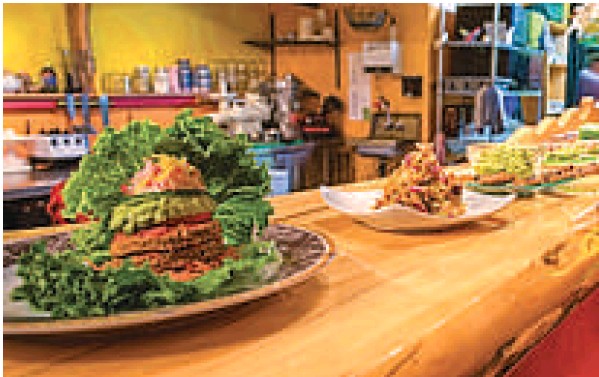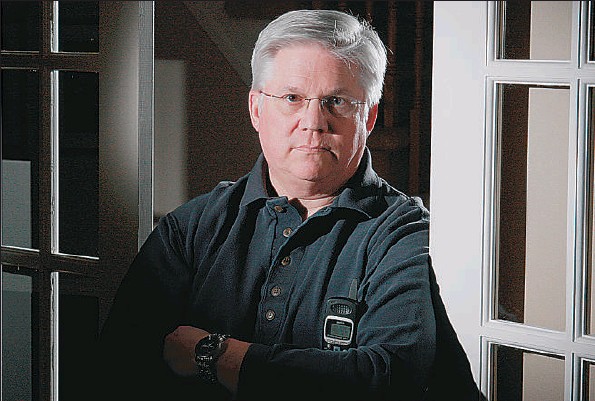Jeremy Hainsworth
USA Today

Vancouver embodies the laid-back West Coast lifestyle, a place where visitors can literally ski in the morning, and sail in the afternoon. By Albert Normandin, Tourism British Columbia

The tiny community of Whistler is a year-round playground, but is best-known as one of North America’s top winter destinations.
VANCOUVER — Hugging a spectacular bay by the Pacific Ocean and ringed by stunning, snowcapped peaks, Vancouver easily ranks as one of the world’s most beautiful cities.
With its sandy beaches, Pacific waters, lush rain forests and a glittering downtown full of skyscrapers, Vancouver considers itself a world-class destination on par with cities like Sydney, Australia, or San Francisco.
The region embodies the laid-back West Coast lifestyle, a place where visitors can literally ski in the morning, and sail in the afternoon. And, now, Vancouver is preparing to host the 2010 Winter Olympic Games.
It’s the most populous destination ever to host the Winter Olympics, with 2.1 million people in the greater Vancouver regional area, according to Canada‘s 2006 census. It’s also Canada‘s third time to welcome the Olympics, having hosted the Montreal 1976 Summer Games and the 1988 Calgary Winter Games. No Canadian has ever won a gold medal on home turf.
The Vancouver region has been home to First Nations peoples, and it’s a heritage that’s celebrated throughout British Columbia.
Europeans arrived in British Columbia in the 18th and 19th centuries with the advent of the fur trade and several gold rushes which brought prospectors from around the world.
Now, the region boasts a multiethnic makeup and vast cultural diversity. Several influxes of Asian immigrants have made it home to one of the largest Chinese populations outside China.
Any exploration of the city would be incomplete without a stroll on the cobbled streets of Gastown with its old-world charm, much-photographed steam clock, quaint pubs, restaurants and galleries.
This is the heart of old Vancouver, which grew up quickly around a makeshift tavern established in 1867 by gold prospector “Gassy” Jack Deighton.
For the less well-heeled, the surrounding area is home to a number of hostels and cheap eateries.
Visitors should be careful not to stray too far south of Gastown lest they wind up in the city’s notoriously squalid and poverty-stricken notorious Downtown Eastside where drugs and prostitution are rampant.
The area was an early “skid row,” a term said to have originated in Seattle, where, as in Vancouver, logs were “skidded” along roads to sawmills.
But that’s just one small part of Vancouver.
Galleries in other areas are worth a visit. The Vancouver Art Gallery hosts international shows as well as a permanent exhibit of the work of Emily Carr who documented West Coast native life.
The gallery steps are a focus of the city’s leisure crowd, lounging to take in the scene and watch street performers.
From there, it’s a short hop to casual Kitsilano, where Fourth Avenue was Vancouver‘s 1960s hippie haven. It’s now home to an eclectic assortment of restaurants and one-of-a-kind shops.
Past Kitsilano is the University of British Columbia, home to the Museum of Anthropology, a temple of light perched atop cliffs over the scenic waters of Howe Sound.
And, at the bottom of the cliffs is Wreck Beach, in warm weather one of North America‘s favorite nude hangouts.
The night buzz in Vancouver is on glittering Robson Street, the city’s Rodeo Drive North, lined with top-name boutiques, oyster bars and java joints. For the more adventurous, the award-winning restaurant atop Grouse Mountain accessible by a gondola offers unparalleled views of Vancouver and its harbor.
Grouse Mountain looms above the rainy mist that often blankets Vancouver from October to March.
On the way to Grouse, take a walk across the Capilano Suspension Bridge if you dare. It spans 450 feet across and 230 feet above North Vancouver‘s spectacular Capilano River.
And, if Grouse’s gondola piques the curiosity, the ski resort town of Whistler — which hosts the alpine events of the Olympics — has the Peak 2 Peak Gondola which has the longest unsupported span for a lift of its kind in the world at 1.88 miles, and the highest lift of its kind above the valley floor at 1,427 feet.
Reaching Whistler is an event in itself.
The Sea-to-Sky Highway connecting Vancouver with Whistler has been redeveloped for the 2010 Games with the blasting of whole cliffs and widening of the once-perilous road.
The 90-mile drive offers awe-inspiring views of sea and mountains.
Be warned, though: The road is still subject to the whims of nature. Last July, a rock slide closed the route for three days.
The tony community of Whistler is a year-round playground, but is best-known as one of North America‘s top winter destinations. The resort came under scrutiny in December when a tower on another gondola collapsed, injuring 12 and stranding others for hours.
Other issues have been in the news lately too.
Vancouver‘s athletes’ village is in limbo as city politicians struggle to refinance it due to the global economic crunch. The city has vowed it will be built on time.
A short walk from the village is Granville Island. It’s a curious mix of restaurants and galleries anchored by the aromatic Granville Island Market.
Dinner here could also mean taking in a play or a comedy club.
And, after dinner, there is no better way to unwind than a stroll along the city’s serpentine waterfront.
Water taxis ply the waves from Granville Island across False Creek to Vanier Park where there are planetarium shows and the nearby Vancouver Yacht Club. While pathways ring False Creek area past Olympic hockey and opening ceremonies venues, the city’s crown jewel is Stanley Park.
Lord Stanley is best known to the rest of the world for the National Hockey League championship cup.
In Vancouver, his legacy is 1,000 acres of primeval rain forest.
The park is crisscrossed with trails through towering firs and cedars, and ringed by the Seawall which offers stunning vistas in every direction.
Copyright 2009 The Associated Press. All rights reserved





